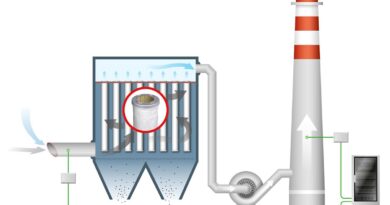The Driving Forces that Make Marine Engine Oil Additives So Important
Additives are the particles that increase the longevity of engine oils. As time progresses, the engine’s temperature and the load on all other parts increase. This rise in temperature results in breaking the chemical composition of the lubricants. When the molecules of these lubricants break, they lose their properties. They cannot reduce friction and protect the engine. And if the engine in question is marine, these issues can result in a catastrophe.
It is no hidden fact that the marine environment differs from the land. That’s why marine engines require special lubricants that can work in such conditions. To make sure the marine lubes work well, marine engine oil additives play a significant role. In this blog, we will learn what makes these marine additives a force to be reckoned with!
Chemical Composition
The marine fuel oil additives consist of chemicals. The selection of the chemicals depends on their function. For example, the additives that serve as detergents are generally metallic salts. Similarly, organic acids and amines are important parts of rust inhibitors. The same goes for all other types of additives. Each of them is designed to perform its specific function.
Important Properties of Oil Additives for Marine Engines
The properties of additives depend on their function. In a marine engine, there are a few important considerations that need to be taken into account. Moisture and salt levels are the factors that must be negated. Based on that, the following are the essential properties of marine engine oil additives:
Detergency and dispersancy
These additives play a pivotal role in keeping the engine clean. They reduce the buildup of deposits and prevent sludge formation and coagulation. They generally work by removing the carbon and other by-products of combustion. These dispersants ensure that no engine damage occurs due to contaminants.
Acid Neutralization (Alkalinity Reserve)
High acid levels in the oil can result in corrosion. So a major property of marine fuel oil additives is alkalinity. They neutralize the acids produced in the engine and prevent corrosion.
Anti-Wear Protection
Engines are the heart and soul of marine vessels. No matter how sturdy they are, they still need protection. The lubricants reduce the friction between the moving parts of the engine. The additives do not stay behind as they help minimize wear on sensitive areas of the engine. They aid the lubricants in preventing metal-to-metal contact under extreme pressure. Thus, they are a crucial component in boosting the engine’s life.
Rust Inhibition
In a marine environment, more than one factor can cause corrosion. Water tops the list; apart from that, salt and acids can also cause rusting. Rust inhibition is one of the important properties of marine engine oil additives. These additives coat the metal parts and prevent moisture damage from corrosive elements.
Antioxidants
Oxidized fuel damages the engine more than anything. Oxidation of fuel occurs when the fuel comes in contact with the oxygen. This results in the formation of sludge and the coagulation of fuel. Marine engine oil additives serve as antioxidants. They boost the oil’s resistance to thermal and oxidative breakdowns. These additives ensure that the oil remains effective for longer periods!
Thermal Stability
The temperature inside the engine can skyrocket. The reduction of the temperature is a key feature of lubricants. But at high temperatures, even these lubricants cannot do anything. The molecules of lubricants break down and need protection. Marine engine oil additives come into play in such circumstances. These additives boost the thermal properties of the oils. This prevents oil degradation at high temperatures!
Viscosity Control (Viscosity Index Improvement)
The thickness of oil is important for its lubricating properties. The viscosity index is the measure of the flow of the liquid in simpler terms, their thickness. Viscosity indexes of different oils are different depending on their functions. The marine diesel oil additives play an important role as viscosity index improvers. They help in maintaining the appropriate oil thickness for optimal performance.
Importance and Environmental Impacts
Marine engine oil additives play a significant role in environmental sustainability. They considerably reduce the environmental impact of marine operations. Thus, these additives are crucial in more than one way. Here is how these additives play a significant role in environmental sustainability.
Reduction of Harmful Emissions
The emission issue has been around for a long time. Many companies and their R&D teams are looking to reduce the harmful emissions. Additives have helped in this regard, as they improve the quality of fuel. They also reduce the emission of oxides of sulfur, nitrogen, carbon, and hydrogen. These oxides are the major pollutants, and their reduced emission is very helpful.
Prolonged Engine and Oil Life
Another important consideration for sustainability is enhancing the life of engines. The marine engines are costly, and a lot of resources are used to manufacture them. Marine engine oil additives extend the life of the engines and make sure they last a long time. They do this by reducing waste and the need for frequent oil changes and engine repairs. This reduces the use of valuable resources and plays a considerable role in sustainable practices.
Supporting Regulatory Compliance
International Maritime Organization (IMO) is a regulatory authority that oversees shipping operations. It is working hard to reduce the impacts of the shipping industry. The additives follow these compliances with these regulations and help ship operations. These additives support global efforts to reduce the environmental impact. They are a key component in reducing the carbon footprint, leading to cleaner seas.
To sum it all up, marine engine oil additives are pivotal in all aspects. They are important both in environmental considerations and enhanced engine efficiency. They reduce emissions, prevent pollution, and support longer engine and oil life. These benefits are crucial in minimizing the environmental impact of the shipping industry. Proper use of these additives can have a serious impact on the world’s oceans and atmosphere. The shipping industry can grow leaps and bounds with the help of these additives!




